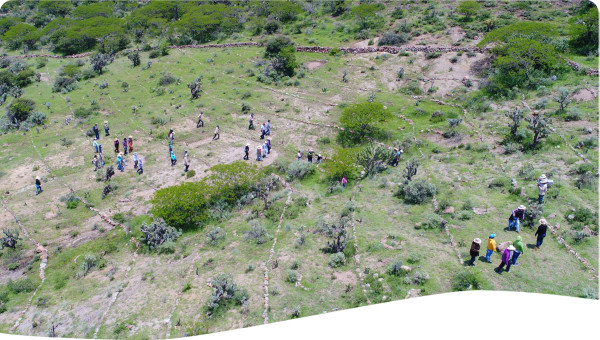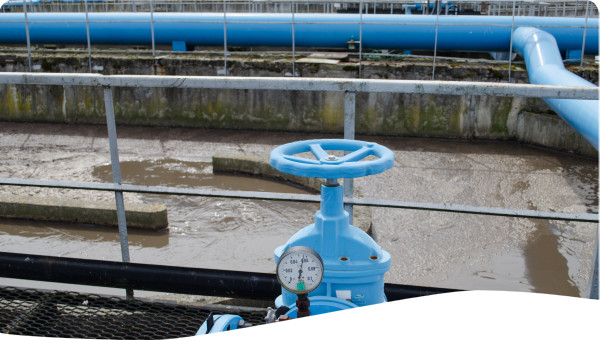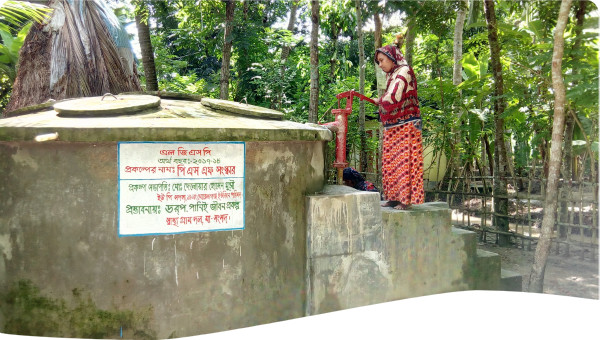In the Netherlands and Belgium, good quality of water has become increasingly scarce. Action was taken and a project was initiated with the objective of conserving water quality and increasing water use efficiency in agriculture. The case illustrates the importance of involving farmers and other water users initially, so that they feel a sense of responsibility and motivation to introduce new approaches.
In the Netherlands and Belgium good quality of water has become increasingly scarce. As a result of improved drainage systems and increasing groundwater use, in large parts of the Netherlands and Belgium, groundwater levels are falling, especially during dry periods, and competition among water users is increasing. The Central Benelux area covers a sub-catchment of the River Maas, including 140,000 hectares of agricultural land.
Since 1998, water management organisations, farmers and drinking water companies in the Central Benelux area have been working together to optimise agricultural water management. A cross-border sub-catchment programme was established, which has been carried out in close co-operation with many stakeholders. Key partners are the farmers and market gardeners. Other parties actively involved include the province of Antwerpen (Belgium), North Brabant (The Netherlands) and the provinces of Limburg (The Netherlands and Belgium), water boards and drinking water companies. All these parties play a role in strategic planning or operational water management in the project area. The soil science survey of Belgium and the water board Peel en Maasvallei in The Netherlands play an advising role. The programme was funded by the EU, the governments of Belgium and the Netherlands, water boards, drinking water companies, and organisations for farmers and market gardeners.
The project was set up with two objectives:
- Water conservation – to reduce the frequency and amount of sprinkler irrigation required by storing more water in aquifers during wet periods, thus making it available during dry periods.
- Water management – to lead to a more efficient use of water at the farm level, through the adoption of sound water management methods such as the cultivation of water-efficient crops and the use of water-efficient methods of cultivation.
One outcome of the programme should be higher groundwater levels during dry periods while maintaining excellent drainage during wet periods. A higher groundwater level in dry periods reduces the need for sprinkler irrigation, which leads to financial benefits for farmers. The farmers and market gardeners are responsible for maintaining the groundwater at an optimum level. In addition, practical measures are being investigated that could help farmers and market gardeners to reduce their water use and groundwater abstractions.
An integrated approach to water management has been adopted, with farmers playing a more prominent role in the operations. Monitoring and communication have also played an important part. The programme focuses on practical measures that can be applied by farmers and market gardeners. It is based on sound technical and scientific knowledge of water conservation and water management at the farm level.
Almost 2000 weirs have been installed; these are often accompanied by wells to monitor groundwater levels. Additionally, 5000 weirs have been planned for the Limburg area alone. Some examples of implemented measures at the farm level include installing small weirs, and measuring groundwater levels and soil moisture content. The weirs have enabled farmers to increase their control of groundwater levels thus reducing the drying out of soil and avoiding damage to crops as a result of high groundwater levels.
The case illustrates the importance of involving farmers and other water users initially, so that they feel a sense of responsibility and motivation to introduce new approaches and are willing to take part in future water management activities. Improved water use efficiency and water conservation have been achieved by implementing measures at the farm level.
Farmers have been involved in the design and implementation, and are responsible for the operation of the system. Farmers have been educated in water management and in assessing the implications of their measurements and are responsible for maintaining the groundwater at an optimum level. Practical measures are being investigated that could help farmers and market gardeners to reduce their water use and groundwater abstractions. The project is supported by a handbook which provides rules and technical support to farmers. Based on the experiences acquired during the project, a computer programme has been developed. This programme helps the weir controllers (farmers, water managers, and conservation managers) to collect and manage data, such as groundwater and surface water levels. Hydrological changes were monitored in addition to participants’ reactions to the project.
A range of activities have been developed to ensure good communication between stakeholders and to involve everyone concerned. Several meetings (94) have been held in the pilot areas. A water conservation and management video was developed for the project. Local radio and television have given broadcasts. Project descriptions have been published in farm magazines. An informative internet site has been set up, and information signs have been put up at participating farms.
Participating farmers and organisations consider the project to be a success. Farmers have found that they can actually manage the water at the farm level and improve conditions for agriculture and horticulture. Water management organisations benefit as a result of improved water management and increased stakeholder participation.
Communication and stakeholder participation were crucial in the development and for the success of the project and have meant that:
Farmers have been willing to install and operate weirs effectively, which was essential for the success of the project.
There has been greater mutual trust between Dutch and Flemish partners.
Transboundary knowledge transfer has led to greater insight into the opportunities and techniques of applying water saving measures.
Farmers and market gardeners have a greater awareness of the importance of water and are willing to take part in future water management activities.
 Case studies
Case studies



